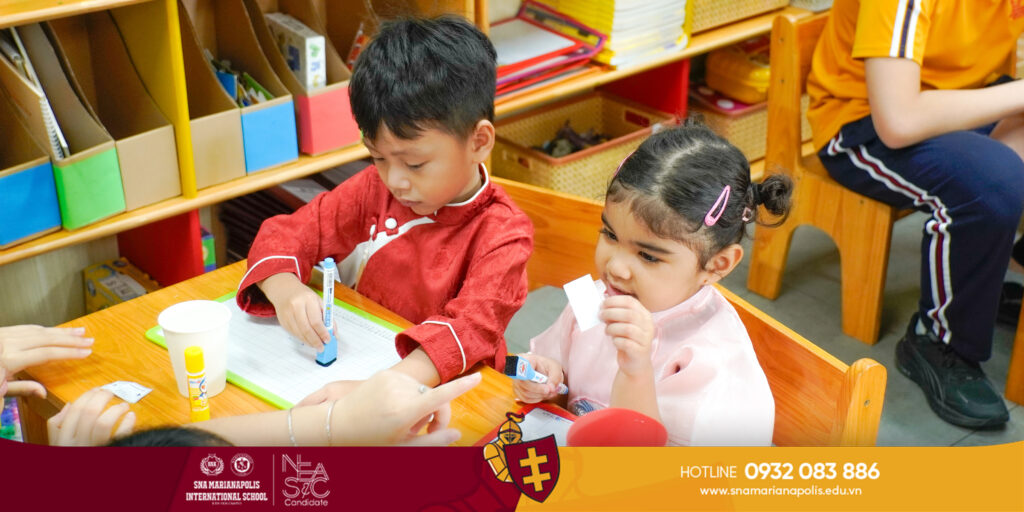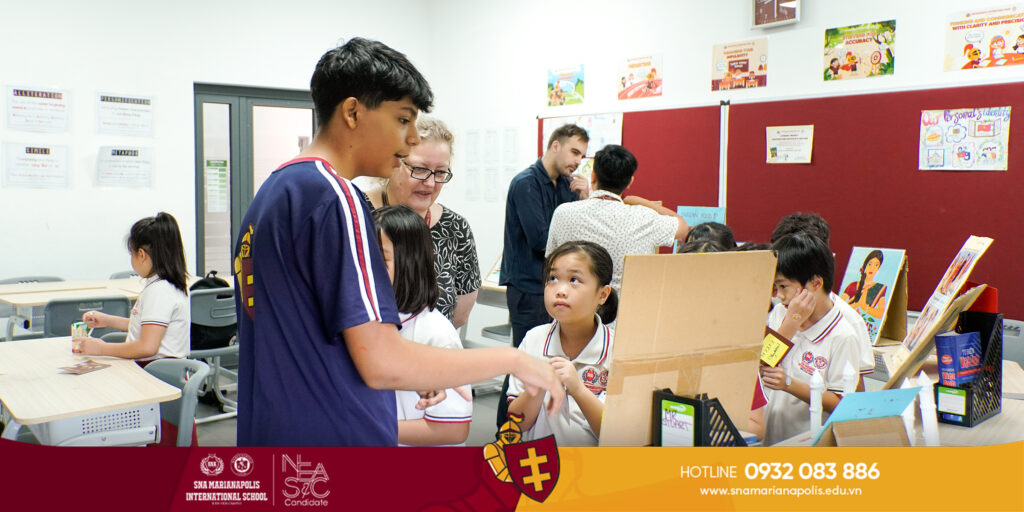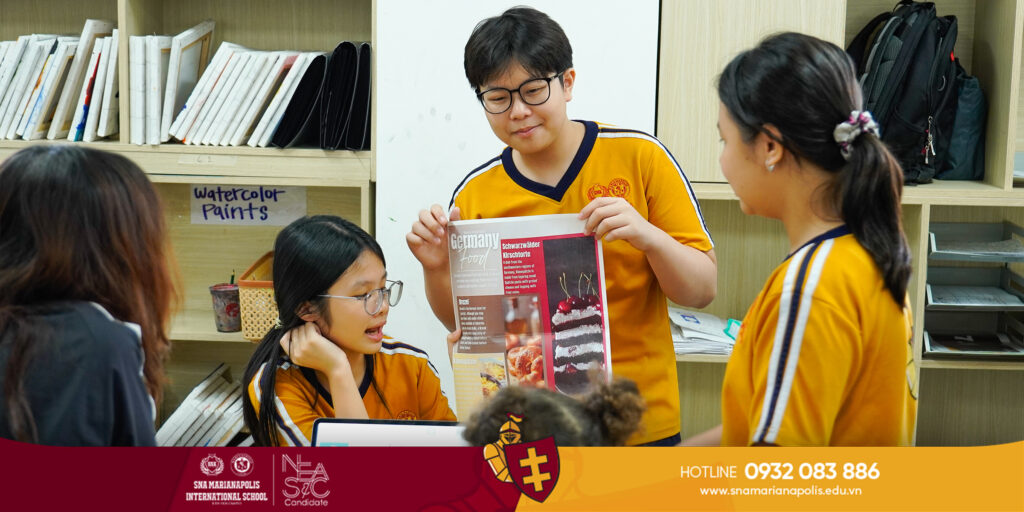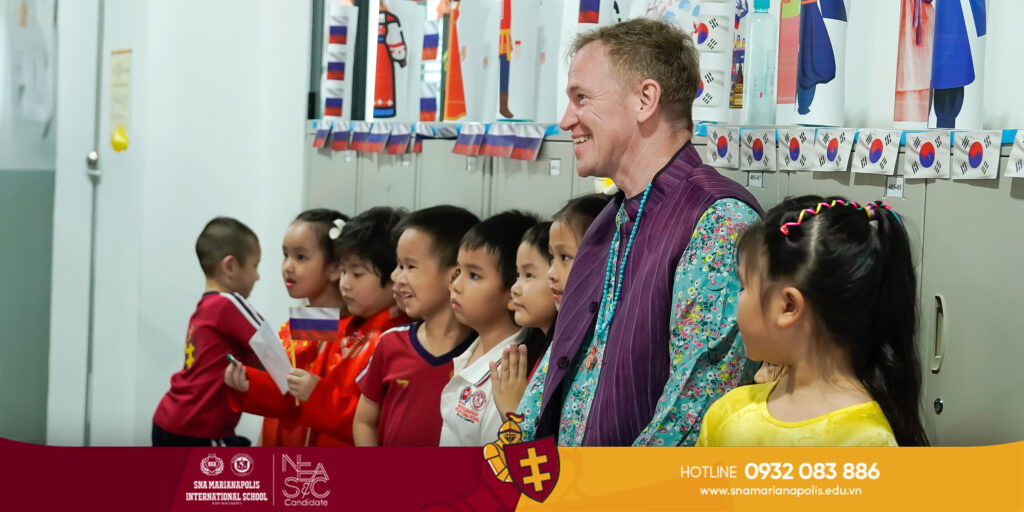TIN TỨC
What is the ideal educational environment in the modern era?
In today’s era of international integration, parents are increasingly choosing international schools for their children, not only for their curriculum and foreign teachers but also for the multicultural environment they offer – a feature not all schools can provide.
The Importance of a Multicultural Environmental Education in the 21st Century
With globalization rapidly expanding, the world is more connected than ever before. Global issues such as climate change, social crises, and international conflicts require future generations to have the ability to work and communicate effectively in multicultural settings. As Christopher Winch and John Gigell state in Philosophy and Educational Policy (2022), multiculturalism in education takes three common forms:
- Assimilation: Minority groups are required to adopt the lifestyle of the host community.
- Integration: Minority groups comply with general societal norms while retaining some of their cultural identity.
- Multiculturalism: Communities are encouraged to preserve their cultural identity while coexisting and evolving together.

Cultural Intelligence (CQ) – The key for students to understand and thrive in a multicultural environment.
Among these, the multiculturalism is ideal because it not only encourages respect and acceptance of differences but also nurtures “Cultural Intelligence” (CQ), an essential skill for success in today’s interconnected world. While IQ enables quick thinking and EQ fosters relationships, CQ serves as the “key” for individuals to connect, collaborate, and thrive in a globalized world. Cultural Intelligence is the ability to work and communicate effectively in multicultural environments. It thrives in diverse settings, where students not only learn to understand and respect cultural differences but also develop communication and cooperation skills, creativity, and an expanded worldview, laying a solid foundation for success in a rapidly changing world.
Benefits of a Multicultural Environment for Students
Developing a global mindset
A multicultural environment helps students broaden their horizons and understand the world around them. At SNA Marianapolis, the curriculum is designed to foster a broad worldview, not confined to a single country or culture. Students engage in global issues, which enhances critical thinking and multidimensional perspectives.

A multicultural environment equips students with a global mindset and critical thinking.
Fostering empathy and respect for diversity
One of the most prominent benefits of a multicultural environment is learning to respect and accept differences. At SNA Marianapolis, students interact with various cultures through events, cultural exchanges, and extracurricular activities, instilling core values such as tolerance and empathy.
Developing language skills and a linguistic mindset
The multicultural environment at SNA Marianapolis improves students’ language skills, particularly English, while fostering a strong linguistic mindset that aids in polyglot skills. With an American-standard curriculum, students practice English in all academic and social activities. Additionally, they learn other languages like Korean, French, and Russian, fostering communication with international peers and nurturing a passion for language studies.

SNA Marianapolis boosts language skills and multilingualism through an American-standard curriculum.
Connecting cultures and expanding global networks
SNA Marianapolis creates an environment where students can share their own cultures and explore those of others. Each student acts as a cultural ambassador, introducing the unique aspects of their culture to the world. This environment helps preserve cultural identities while promoting global connections and the development of international collaboration skills.
Seizing opportunities and shaping future careers
A multicultural environment not only develops social skills but also equips students with critical career skills such as teamwork, creativity, adaptability, and global thinking. This gives students a distinct advantage in building strong foundations for their careers, opening opportunities in multinational companies, global corporations, and international organizations.

SNA Marianapolis's multicultural environment fosters essential career skills for global opportunities.
A Launchpad for Global Dreams
SNA Marianapolis International School is proud to be a leading international school in Dong Nai Province, with a diverse community of students and teachers from over 15 countries and territories, including the USA, UK, Germany, Italy, South Korea, Vietnam, and many others. This creates a vibrant, diverse, and challenging learning environment that helps students develop not only intellectually but also in communication, leadership, and integration into the international community.

SNA Marianapolis, with a vibrant multicultural environment, upholds global standards and empowers students’ futures.
In its ongoing effort to uphold international standards in education and continuously improve the quality of its teaching, SNA Marianapolis has officially become a candidate school for NEASC (New England Association of Schools and Colleges). This not only affirms the school’s superior educational quality but also opens new opportunities for students, empowering them to confidently pursue admission to prestigious universities worldwide.
